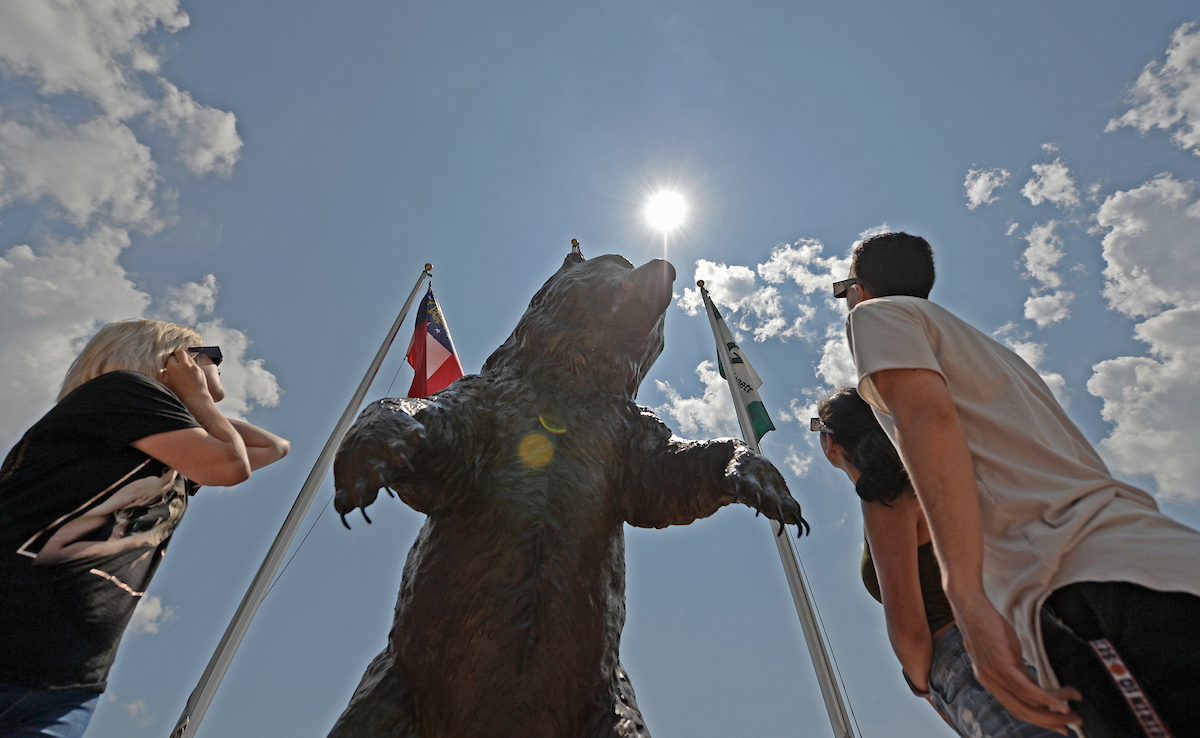news
Georgia Gwinnett College to host solar eclipse viewing April 8

A solar eclipse occurs when the sun, moon and Earth align perfectly so that the moon completely blocks the sun’s light. According to NASA, the eclipse on April 8 is special because it will be the most visible yet, crossing many states with a slice of total darkness.
Georgia Gwinnett College (GGC) is hosting a solar eclipse viewing that is free and open to the public.
Dr. Paul Camp and Dr. Amy Turner, assistant professors of physics at GGC, will host the viewing of the eclipse at 1:30 p.m. The public is invited to meet on campus outside of the Daniel J. Kaufman Library and Learning Center. Both professors will share information about the eclipse as part of the viewing experience.
Camp said eclipses go through cycles where they repeat themselves every 6583.3 days, which is about 18 years.
“The last eclipse of the 20th century was on August 11, 1999,” Camp explained. “6,583 days later, there was another eclipse on August 21, 2017. This cycle was discovered by the Babylonians about 3,000 years ago and named the Saros Cycle by Edmund Halley, of comet fame.”
Camp added that the earliest recorded solar eclipse was on March 5, 1223 BCE, recorded on stone tablets from the city of Ugarit in what is now Syria.
While the state of Georgia is not in the path for the total eclipse, viewers will still have the chance to see it.
Precautions need to be taken when viewing an eclipse.
“This is a unique opportunity to view the solar eclipse safely,” said Camp. “It’s important for anyone wanting to view this that they take proper precautions to protect their eyes.”
One way to do that is through projection.
“We’ll be setting up one of our telescopes and projecting the eclipse,” added Turner. “We’ll also have some binoculars that are designed for directly viewing the sun.”
